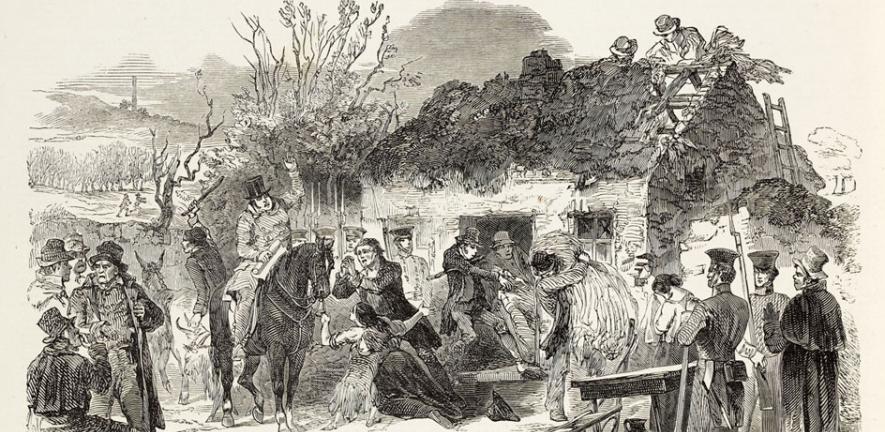WELL, here we are, in a spanking New Year. Time to consign the past to the dustbin of history, time to focus on the future. Right? Well, actually, No.
This isn’t just a matter for idle speculation. An example: the Norwegian state broadcaster, NRK, at this moment finds itself in a tricky situation. Over the Christmas period, it aired a programme titled ‘24-Star Christmas Calendar’. The programme consisted of several players searching to find a hidden potato. Jollying things along, the programme’s presenter Markub Neby declared: “Just like in Ireland 1838 to 1845, last man to the potato loses.”
I don’t know how the average Norwegian viewer reacted to this remark. Eddie Whyte, an Irishman who’s been living in Norway for 30 years, contacted the station to let them know what he thought of this high-handed ‘joke’. The broadcaster was contrite, saying it hadn’t been aware that the Great Hunger, which happened so long ago, still played a strong part in the Irish collective memory.
So was Eddie Whyte being over-sensitive? Well, before you answer that, try this: Isn’t it time the Jews got over the Holocaust? After all, it happened over 80 years ago; surely by now it’s ripe for some rib-tickling? And isn’t it time the native people of North America, Australia and New Zealand got over the fact that the arrival of the white man destroyed their way of life and stole their land?
Once you ask these questions, the answer is obvious. What distinguishes the Jewish Holocaust, the Great Hunger, the colonisation of North America, Australia and New Zealand from other disasters is that they didn’t happen by accident. It was Nazi policy to ‘purify’ the race and expunge Jews from history. It was the deliberate policy of European powers, notably Britain and Spain, to steal the land of the native people and to replace their whole way of life with that of Europeans. Likewise, it was deliberate policy by the English to let the Irish starve to death. At the height of An Gorta Mor, ships laden with food were leaving Irish ports for Britain. A conscious decision was taken to let the Irish starve, since this would have the happy effect of lessening the excessive Irish population.
British history has successfully labelled what happened in Ireland ‘The Great Famine’, a tragic but unavoidable disaster. An Gorta Mor, The Great Hunger – a term rarely used by the English – suggests that the Irish were victims of English policy, not fate. Nor does evil become good, just because it happened a long time ago Those who argue that we should draw a line and forget it display the intelligence and ethics of an earthworm.
There is a school of thought now which speaks of ‘intergenerational trauma’ – that the trauma of An Gorta Mor, of the Holocaust, of ruthless colonisation, goes beyond the victims of the time. That succeeding generations of people bear the wounds inflicted on their ancestors. On January 26, Eddie Whyte will take his case against the Norwegian state broadcaster to the State Broadcasting Authority, emphasising that pain as well as guilt doesn’t vanish – it travels down through the generations. Eddie Whyte and others like him are challenging the guff about forgetting the past and are revealing it as the con-trick it is.
Bliain úr faoi mhaise duit – Happy New Year.









